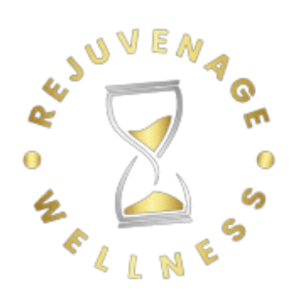Housing Solutions for 60 year olds and up

Housing Solutions
Where will you live as you age?
What about if you have an illness or dementia? There are many big decisions to make as we age. Ideally many people would like to age in place by living in their homes. While this can be an option with proper support, many with illnesses must be relocated into one of many various types of housing options ranging from active adult communities to nursing homes. The type you will need depends largely on your own physical and mental independence.
BOOK a call is other living options are needed. We have resources in New Jersey.
Aging in Place
Aging in place used to mean the preference to stay in your home or never move but our current definitions include expanding living scenarios to include various types of housing. Much of the ability to stay in your own home depends on the home environment itself and its obstacles as well as family and community support and independence in activities of daily living.
BOOK a call with us to have a HOME SAFE ASSESSMENT performed.
Older individuals may choose to move due to divorce, death of a spouse/partner, or an unexpected loss of income. If one is to continue aging in their own home, it may require modifications to prevent falls and other injuries as well as to make activities of daily living easier insuring greater independence.
Costs for home modifications may range from $1000 to thousands of dollars depending on the physical alterations that are required.
Home health agencies are usually certified by Medicare and may have care managers to help you navigate what services are needed as well as other housing options available.
BOOK a call with us if you’re in NJ and need housing for yourself or a loved one. We have resources.
Older patients and their families who have more time and resources may be able to evaluate specific housing environments and locations. The World Health Organization established the global network of age-friendly cities and communities to foster mutual exchange of experience and learning between cities and communities worldwide.
Independent living communities cater to healthy older people who want to live among their peers. Many offer homemaker and housekeeping services. They may not be any actual assistance with activities of daily living, however.
Housing Solutions Options
Independent Living Communities
Independent living communities cater to healthy older people who want to live among their peers. Many offer homemaker and housekeeping services. They may not be any actual assistance with activities of daily living, however.
There’s a wide range of housing options from aging in your own home to active adult communities which may be age-restricted or age-targeted. These communities are designed for healthy, more active individuals and don’t necessarily offer services in the home.
Cohousing is another option where 20 to 40-family residences are clustered around a common courtyard or shared space. Many may have a shared common house with a large kitchen and dining room where people can socialize and help one another.
Other Options
Another option is shared housing where two or more unrelated people are sharing a home. An older person may seek to find and become a roommate or where multiple residents can rent private bedrooms and share common areas.
Independent living communities cater to healthy older people who want to live among their peers. Many offer homemaker and housekeeping services. They may not be any actual assistance with activities of daily living, however.
If you’re in New Jersey, call us for important resources on housing needs.
HUD Assisted Housing
HUD assisted housing make make affordable housing available for people with disabilities.
Assisted living communities may provide 24 hour access to supportive care for clients who have difficulty performing their activities of daily living but don’t necessarily require full-time skilled nursing care. Some have designated units for people with dementia and specifically Alzheimer’s. Medicare does not pay for assisted living.
Board and care homes can be run by a private homeowner may have professional qualifications and training may accommodate a few residents at a time. People with Medicaid may pay for these types of housing. Continuing care retirement communities typically over full care while you stay. Residents can move back and forth from more independent care to nursing home care. They can receive home-delivered services and if their health deteriorates can move our transition into the nursing home. The cost of care will change based on the level of assistance needed.
Nursing Homes
Nursing homes typically the highest level of care for older persons and their families.
They provide the full continuum of care with activities of daily living, meals and medical services. Some nursing homes will have specialized wings and can accommodate people with Alzheimer’s disease as well as other chronic conditions and offer some rehabilitation services.
Medicaid may pay for nursing home care they have a look back. And will have you use your own financial resources before it is necessary for them to pay.
This can be a daunting task for a family member to choose the right housing. It’s wise to use a referral and placement service which should be certified by the National Placement Referral Alliance.
A professional move management company may also be useful in helping you to determine what is the right housing and care requirements for your loved one. Certified managers may be found by the National Association of Senior Move Managers.
If you’re in New Jersey, call us for important resources on housing.
